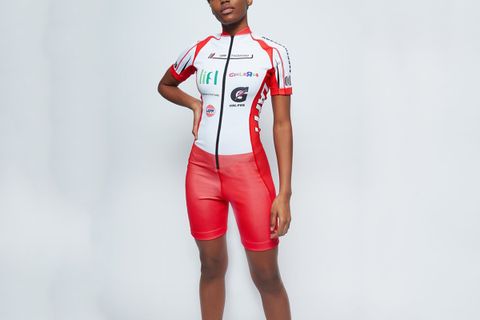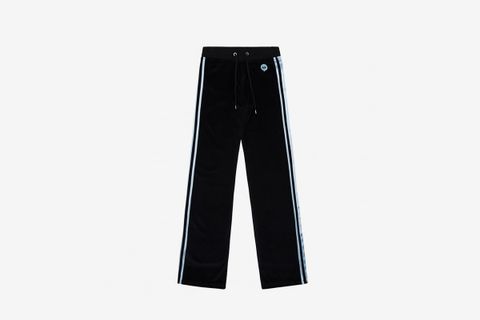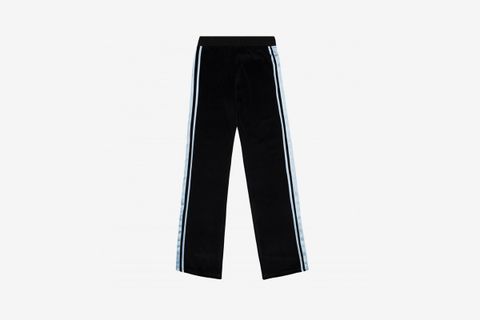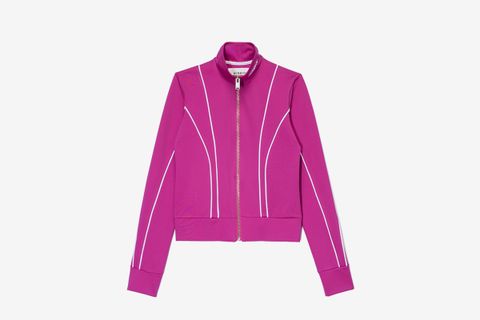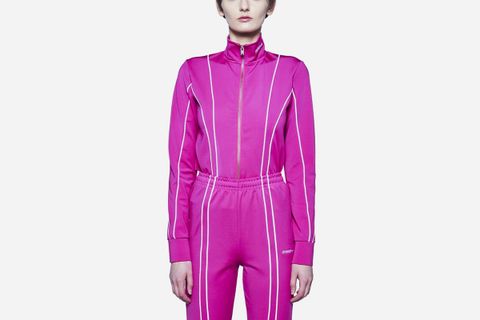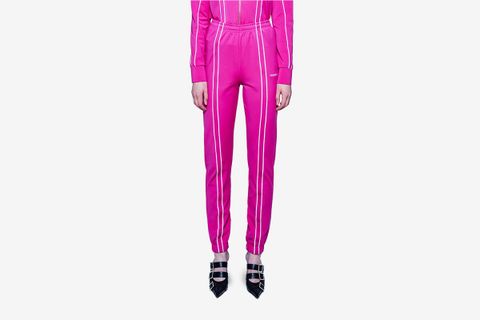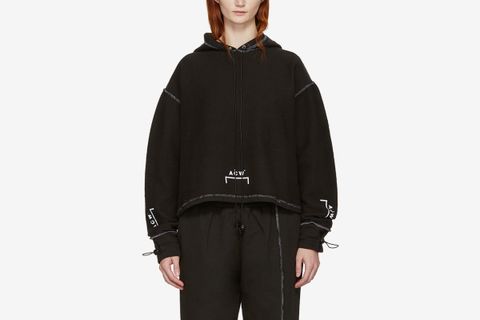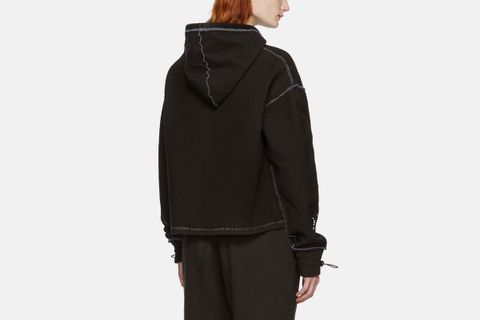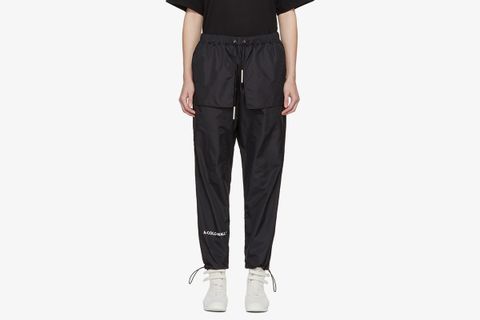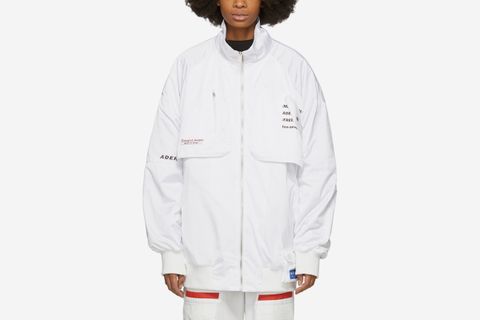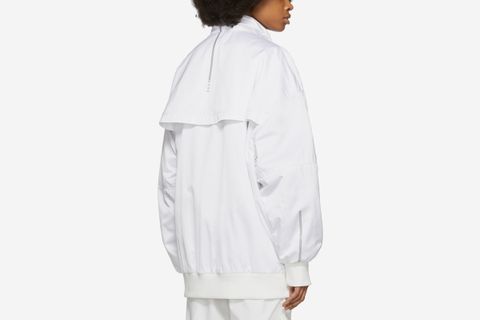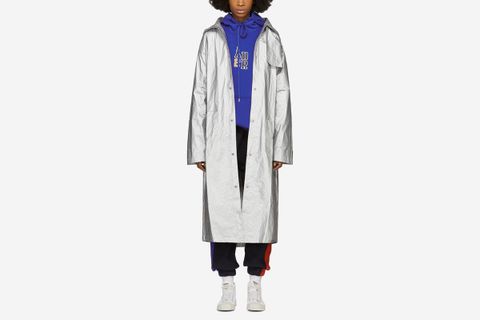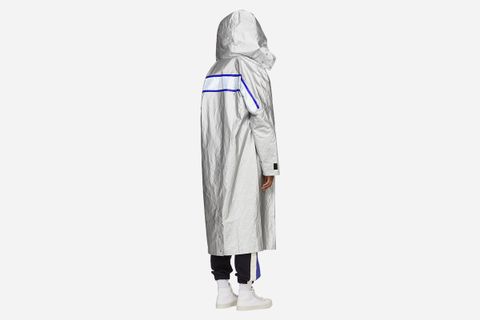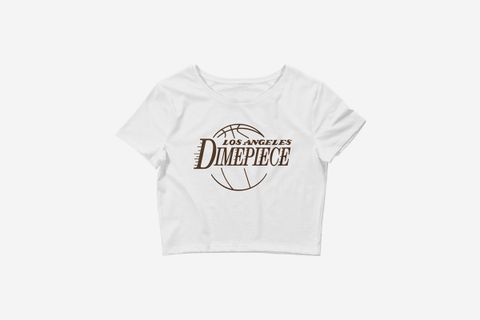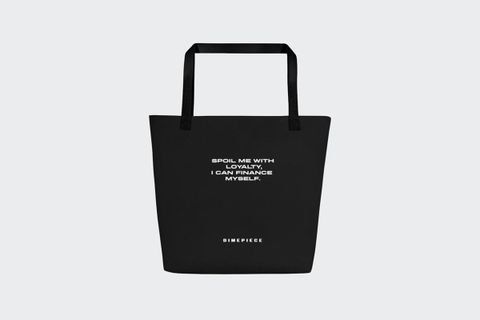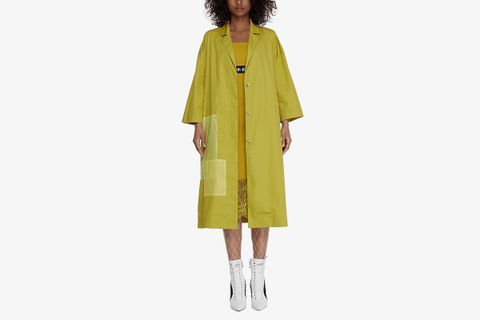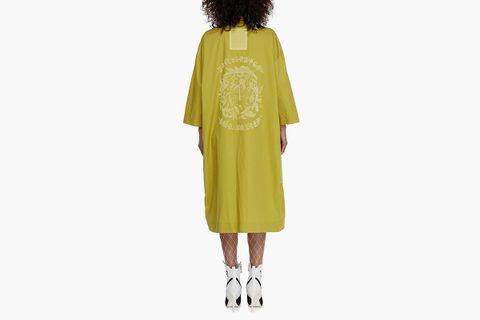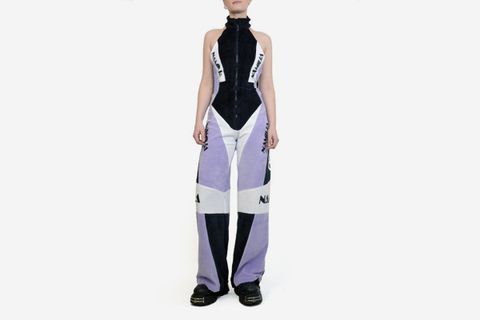8 Women’s Streetwear Brands to Watch
It’s safe to say streetwear is largely a male-oriented world. From head designers to the influencers and consumers, women’s streetwear can often be regarded as an afterthought when it comes to major fashion drops.
The obvious question here is “Why?” Women’s involvement in street cultures such as skating or hip-hop is well documented. It was these movements that gave rise to streetwear brands X-girl, HLZBLZ, and Married to the Mob. At all three companies, women have been at the helm, speaking directly to female consumers without the need for a co-sign from male-led powerhouse brands such as Supreme and Stüssy.
The attitudes fostered by these three labels can be today be traced to more commercial labels, such as Rihanna’s Fenty x PUMA line. Regardless of the affiliation with the German sportswear giant, Rihanna and Fenty’s influence speaks volumes about the evolving role of women in street fashion. Similarly, Elissa Steamer — the first woman skater to turn pro — has seen growing success with her skate brand Gnarhunters.
In the social media age, both popular and niche labels are just a tap and scroll away. Below, we’ve rounded up some of the best in androgynous, ultra femme and glam women’s streetwear, with something for every style and budget.
Check out eight women’s streetwear brands you ought to keep on your radar below.
LAPP the Brand
Established by British model Leomie Anderson in 2016, LAPP the Brand is a relative newcomer to the streetwear game, but a welcome one. Making its mark as both a fashion line and lifestyle brand, its online platform subscribes to intersectional feminism and championing women professionally.
The company’s marketing materials aim to be inclusive of all races, and LAPP’s collection primarily serves up pro-feminist slogans and graphics, as well as the company’s branding across its sweatsuits, T-shirts, undergarments, and accessories.
LAPP’s first collection focused on reclaiming the word “No”, to empower women in response to unwanted pressures and sexual harassment. More recent drops have included colorful, layered graphics such as the Jorja Smith-endorsed Track Logo one-piece.
Illustrated People
Starting as a small T-shirt collection in East London, Illustrated People has undergone several aesthetic shifts since its establishment in 2003. The independent label, at the time relatively unknown, attracted attention when it signed up reality TV star Phoebe Lettice Thompson as creative director in 2014.
Although best known for her role on British series Made in Chelsea, the stylist had already racked up experience at British couturier Bruce Oldfield and print publications such as Wonderland and U.S. Vogue. Her first collection drew inspiration from Japan’s Harajuku culture, with pastel pinks, purples, and kitschy “kawaii” Japanese expressions dominating the capsule.
Since then, the brand has adopted a more ’90s-influenced look. As seen above and below, much of the brand’s current “baby girl” vibe features fresh takes on racer stripes and pattern details, while remaining very sportswear-focused.
MISBHV
Poland’s MISBHV is a force to be reckoned with when it comes to women’s streetwear. Label founder Natalia Maczek might have passed up the chance to study at London College of Fashion, instead choosing law in Warsaw, but her love of fashion laid her path regardless.
At 19, Maczek began customizing sweaters and T-shirts, her designs gaining notoriety in Poland clubbing scene. Early designs and sketches leaned on post-Soviet punk/street aesthetics, and as collections grew, the brand remained true to its roots, with subsequent capsules maintaining DIY techniques and aesthetics. And while the quality of fabrics has improved (Italian lamb for leather jackets, Portuguese wool for coats), with more refined, tailored garments, MISBHV’s raw attitude remains front and center.
Early in the brand’s life, London-based luxury store Browns gave MISBHV the ultimate seal of approval. And while Maczek has rejected the “luxury” label, fans such as Rihanna continue to push the brand into the big leagues.
A-COLD-WALL*
Many know of Samuel Ross’ label as a men’s brand, and technically they’d be right. But while the London-born “design project” is largely male-focused, its capsules have long catered to women’s streetwear, with the brand announcing recently that an official women’s line is to drop soon.
Ross’ start in fashion began by selling knockoff sportswear gear to friends at school. Finding love in illustration and construction, the artist-turned-designer worked closely with friend and collaborator Andrew Harper on his first label, 2wnt4. During this time, Ross found himself brushing shoulders with OFF-WHITE founder Virgil Abloh, going on to work as his creative assistant. After two years with the now-Louis Vuitton menswear director, Ross has gone on to self-fund what is now A-COLD-WALL*.
Initial collections incorporated detailed, technical elements, with the capsules sourcing specialized fabrics. Ross, who is inspired by bespoke tailoring, charts the connection between high fashion and his working-class upbringing in his drops. So while it might be known for its men’s output, ACW remains a smart option for those who prefer less “feminine” streetwear styles but wish to don something that still packs edge.
ADER Error
Founded in 2014, cult South Korean label ADER Error is something of an underdog when it comes to women’s streetwear. However, the design team behind the brand, while largely anonymous, have reportedly been trained at some of fashion’s finest institutions, including London’s Central Saint Martins, New York’s Fashion Institute of Technology, and France’s ESMOD.
Based in Seoul, ADER Error limited its early collections to the Asian market, with T-shirts, sweatshirts, and hoodies its primary sellers. More recently, the label has expanded its range with more tailored drops, including outerwear and accessories.
Much like Japan, many South Korean brands have pushed for genderless or asexual fashion, and ADER Error is no exception. The brand’s slogan “But near missed things” refers to the company’s ethos of drawing inspiration from nearby items and ideas — manifesting itself as a twist on normcore aesthetics.
Its “baggy boy” looks often feature asymmetrical cuts, open stitching, oversized silhouettes, and kitschy slogans, blurring the boundaries found in the more gendered fashions of the West.
Dimepiece LA
Established just over 10 years ago, Dimepiece LA has a large footprint on Instagram. For those of you who follow the likes of Cara Delevingne, Jourdan Dunn, or Ashley Benson, you’ve likely already seen the brand’s sporty-chic designs.
The California-based label draws inspiration from Los Angeles’ polarized landscape, flitting between the glamor of Hollywood and the chilled, laid-back flow of the city’s downtown. Co-founders Ashley Jones and Laura Fama notably drew inspiration from the feisty attitude of women in sports and rap, with ’90s figureheads such as Aaliyah, Missy Elliott, and Lil Kim easily recognizable references.
High-neck collars, tennis skirts, and more recently, its racer-inspired athleisure range have become fast favorites on social media, where you’ll see T-shirts, cycling shorts, and gym gear featuring takes on popular branding alongside pro-women statements.
Daily Paper
Like 032c, Daily Paper has transformed itself from a style blog into a fashion-forward label. Although based in Amsterdam, its co-founders Jefferson Osei, Hussein Suleiman and Abderrahmane Trabsini all boast African origins – Ghana, Somalia and Morocco, respectively.
Consequently, much of the label’s drops draw inspiration from their native homelands, combining personal knowledge with active research on traditional patterns and prints. Comparisons can be made to A-COLD-WALL*, with both labels combining the technical elements of high fashion with oversized cuts and shapes.
The brand’s first collection only featured a menswear line, but Daily Paper has since expanded into womenswear. Blending contemporary silhouettes with traditional styles of dress, Daily Paper is one for fans of buckles, straps, and puffa-styles.
Namilia
The cultural landscape of Berlin, where Namilia is based, mirrors the party-hard, sex-positive aesthetics found in the label’s capsules. Founders Nan Li and Emilia Pfohl met at Berlin University of the Arts, and soon found a way to target runway fashion- and streetwear-minded consumers alike with kitsch collections that often play on the taboo and slightly perverse.
Garments and accessories such as its G-string chaps, dick bra, and labia coin purse speak volumes about the brand’s subversive, nonconformist attitude, while its approach of creating one-off pieces is for those who don’t mind spending a little extra for something unique.
For more like this, here are 20 essential womenswear pieces to cop right now.
